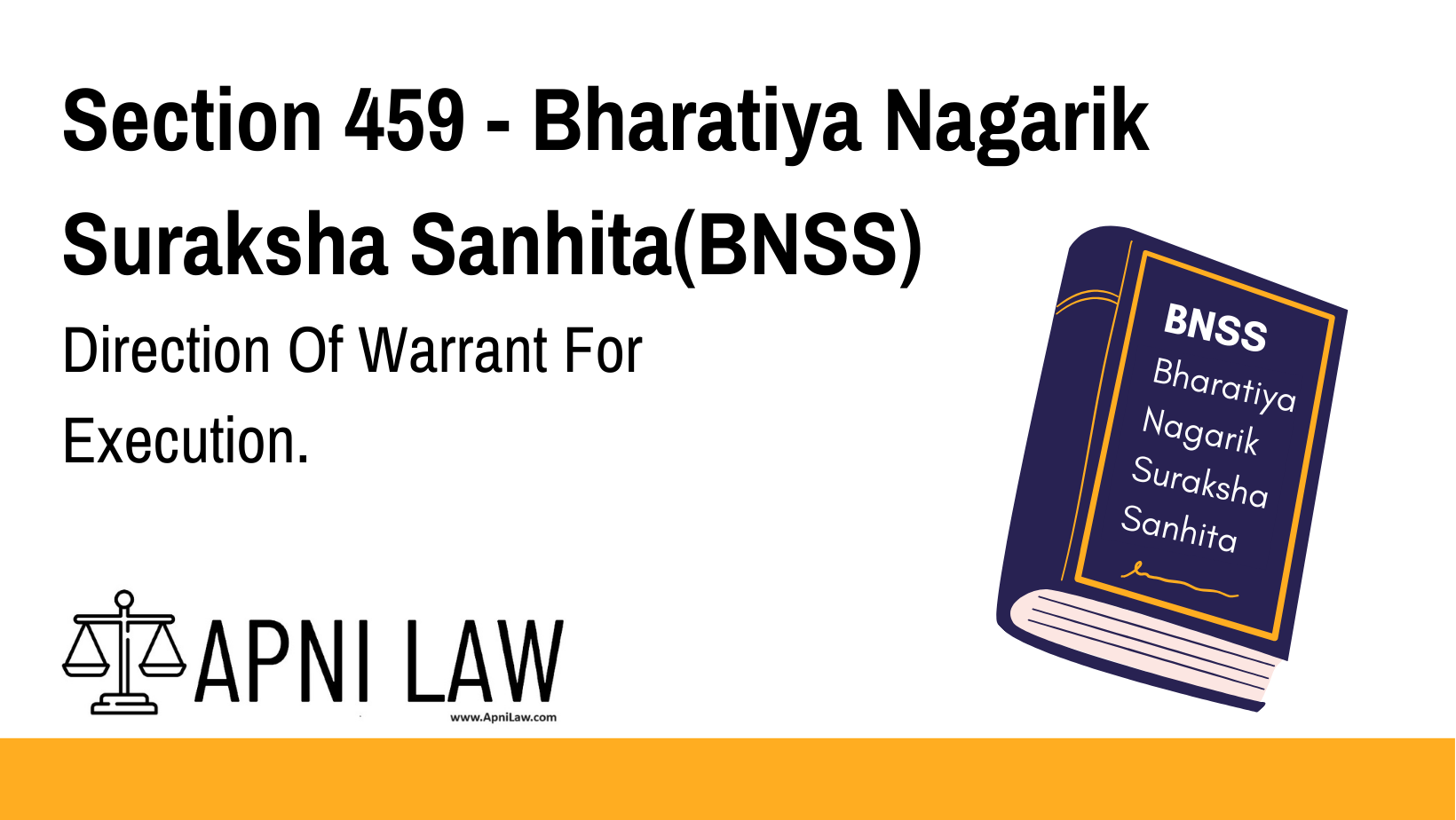Code
Every warrant for the execution of a sentence of imprisonment shall be directed to the officer in charge of the jail or other place in which the prisoner is, or is to be, confined.
Explanation of Section 459 BNSS
Section 459 of the Bharatiya Nagarik Suraksha Sanhita (BNSS), 2023, governs the execution of warrants for imprisonment. It mandates that all such warrants must be addressed to the officer in charge of the jail or the designated place of confinement. This ensures the proper and legal execution of a court-ordered imprisonment.
Key Provisions of Section 459 BNSS
- Authority for Execution: The warrant must be directed to the jail officer responsible for the prison or detention center where the convict will serve their sentence.
- Legal Compliance: The execution of imprisonment must strictly follow the procedural mandates outlined in the BNSS.
- Scope of Application: This section applies to all criminal sentences involving imprisonment, whether rigorous or simple.
Illustrations
Example 1: Execution of a Sentence of Imprisonment
A person is sentenced to five years of imprisonment for an offense under Section 302 BNSS (Punishment for Murder).
The Court issues a warrant to the jail superintendent, directing the convict’s confinement in a designated prison.
Example 2: Transfer to Another Prison
If a prisoner needs to be shifted from Jail A to Jail B for security reasons, a new warrant must be issued under the supervision of the Court.
Common Questions and Answers on Section 459 BNSS
1. Who is responsible for executing the warrant under Section 459 BNSS?
The officer in charge of the jail or the designated confinement center is responsible for executing the warrant.
2. What happens if a jail officer refuses to accept a warrant?
Refusing to accept a valid warrant can lead to legal consequences for the officer, including departmental action.
3. Can a warrant be executed in any jail?
No, the warrant is directed to a specific jail where the convict is to be confined. Any change requires court approval.
4. What if the prisoner is already in custody?
If the prisoner is already in jail, the warrant ensures their continued lawful detention under the new sentence.
5. Does Section 459 BNSS apply to life imprisonment or the death penalty?
It applies to all imprisonment sentences, but execution of a death sentence follows a different process outlined in Section 461 BNSS.
Conclusion
Section 459 BNSS ensures the proper execution of imprisonment warrants by directing them to the authorized jail officer. This provision maintains judicial order and ensures that convicted individuals serve their sentences lawfully.
For expert legal insights, visit ApniLaw today! 🚀








